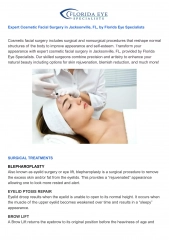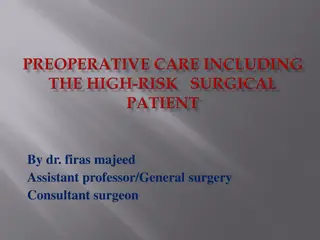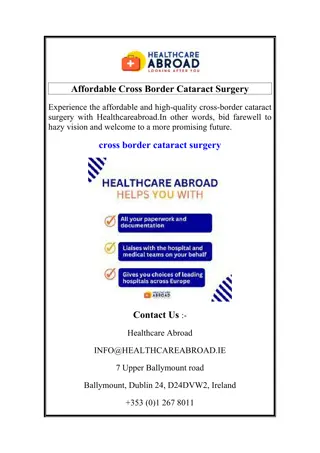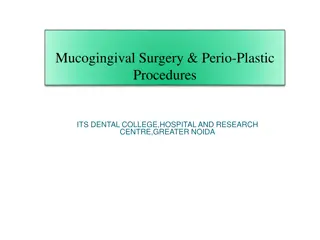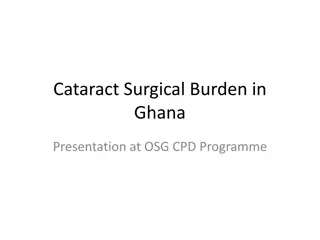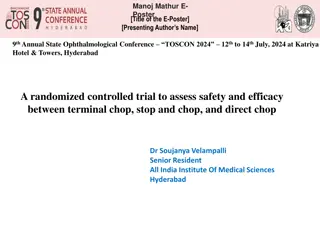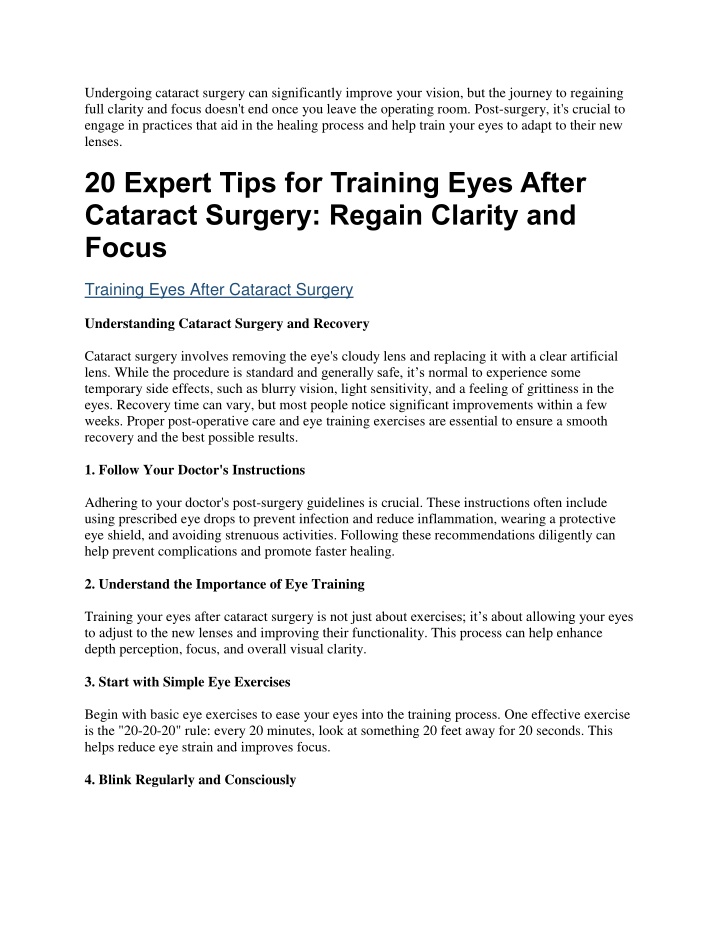
20 Expert Tips for Training Eyes After Cataract Surgery Regain Clarity and Focus
Recovering from cataract surgery involves more than just healing; it\u2019s about retraining your eyes to adapt to new lenses and improved vision.
Download Presentation

Please find below an Image/Link to download the presentation.
The content on the website is provided AS IS for your information and personal use only. It may not be sold, licensed, or shared on other websites without obtaining consent from the author. If you encounter any issues during the download, it is possible that the publisher has removed the file from their server.
You are allowed to download the files provided on this website for personal or commercial use, subject to the condition that they are used lawfully. All files are the property of their respective owners.
The content on the website is provided AS IS for your information and personal use only. It may not be sold, licensed, or shared on other websites without obtaining consent from the author.
E N D
Presentation Transcript
Undergoing cataract surgery can significantly improve your vision, but the journey to regaining full clarity and focus doesn't end once you leave the operating room. Post-surgery, it's crucial to engage in practices that aid in the healing process and help train your eyes to adapt to their new lenses. 20 Expert Tips for Training Eyes After Cataract Surgery: Regain Clarity and Focus Training Eyes After Cataract Surgery Understanding Cataract Surgery and Recovery Cataract surgery involves removing the eye's cloudy lens and replacing it with a clear artificial lens. While the procedure is standard and generally safe, it s normal to experience some temporary side effects, such as blurry vision, light sensitivity, and a feeling of grittiness in the eyes. Recovery time can vary, but most people notice significant improvements within a few weeks. Proper post-operative care and eye training exercises are essential to ensure a smooth recovery and the best possible results. 1. Follow Your Doctor's Instructions Adhering to your doctor's post-surgery guidelines is crucial. These instructions often include using prescribed eye drops to prevent infection and reduce inflammation, wearing a protective eye shield, and avoiding strenuous activities. Following these recommendations diligently can help prevent complications and promote faster healing. 2. Understand the Importance of Eye Training Training your eyes after cataract surgery is not just about exercises; it s about allowing your eyes to adjust to the new lenses and improving their functionality. This process can help enhance depth perception, focus, and overall visual clarity. 3. Start with Simple Eye Exercises Begin with basic eye exercises to ease your eyes into the training process. One effective exercise is the "20-20-20" rule: every 20 minutes, look at something 20 feet away for 20 seconds. This helps reduce eye strain and improves focus. 4. Blink Regularly and Consciously
Blinking is a natural way to keep your eyes moist and comfortable. After cataract surgery, it's common to experience dry eyes. Make a conscious effort to blink more often, especially when reading or using digital devices. 5. Practice Eye Rolling Eye rolling can help relax your eye muscles and improve flexibility. Sit comfortably, close your eyes, and slowly roll them in a circular motion. Repeat this several times in both directions. 6. Focus on Near and Far Objects Improving your eyes' ability to focus on different distances is essential. Hold an object at arm's length, focus on it for a few seconds, then shift your focus to something farther away. Repeat this exercise several times. 7. Use a Warm Compress Applying a warm compress to your eyes can help soothe discomfort and improve blood circulation. This can be particularly beneficial if you experience dryness or irritation. 8. Protect Your Eyes from UV Light Post-surgery, your eyes are more sensitive to light. Wearing sunglasses with UV protection whenever you go outside can help shield your eyes from harmful rays and prevent further irritation. 9. Maintain Proper Hygiene Keeping your eyes clean is vital to prevent infection. Gently clean your eyelids and the area around your eyes with a damp, clean cloth. Avoid rubbing your eyes, especially with dirty hands. 10. Stay Hydrated Drinking plenty of water is essential for overall health, including eye health. Staying hydrated can help reduce dryness and promote optimal eye function. 11. Limit Screen Time Extended screen time can strain your eyes, especially during the recovery period. Take frequent breaks and use the "20-20-20" rule to give your eyes a rest. 12. Use Prescribed Eye Drops Your doctor will likely prescribe eye drops to aid in the healing process. Use them as directed to prevent infection, reduce inflammation, and keep your eyes lubricated.
13. Get Plenty of Rest Adequate rest is crucial for recovery. Ensure you get enough sleep each night and take short naps if needed. Proper rest allows your body, including your eyes, to heal more effectively. 14. Avoid Strenuous Activities During the initial recovery period, avoid heavy lifting, bending over, and any activity that might increase pressure in your eyes. Follow your doctor's advice on when it s safe to resume normal activities. 15. Monitor Your Vision Changes Keep track of any changes in your vision, such as increased blurriness, pain, or light sensitivity. Report any concerning symptoms to your doctor immediately to address potential issues early. 16. Adjust Lighting in Your Environment Ensure that your living and working spaces have adequate lighting. Avoid overly bright lights and use softer, ambient lighting to reduce strain on your eyes. 17. Eat a Nutrient-Rich Diet A diet rich in vitamins and minerals, especially those beneficial for eye health, can support your recovery. Include foods high in vitamin A, C, E, and omega-3 fatty acids, such as leafy greens, carrots, citrus fruits, nuts, and fish. 18. Engage in Relaxation Techniques Stress can affect your overall recovery, including your vision. Practice relaxation techniques such as deep breathing, meditation, or gentle yoga to help your body and eyes relax. 19. Schedule Follow-Up Appointments Regular follow-up appointments with your eye doctor are crucial to monitor your progress and address any issues promptly. These visits help ensure that your recovery is on track and that your eyes are healing properly. 20. Stay Positive and Patient Recovery after cataract surgery is a gradual process.


